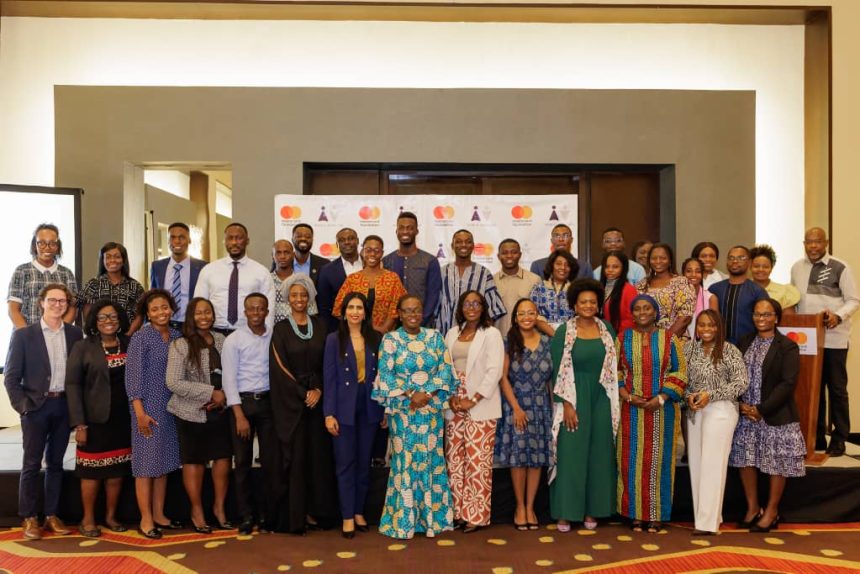The World Data Lab (WDL), in collaboration with the Mastercard Foundation, has successfully introduced the Africa Youth Employment Clock in Ghana.
This real-time digital platform tracks and provides current information and projections on youth employment trends, aiming to raise awareness and find solutions to youth unemployment in Africa until 2030.
During the welcome address at the launch event, Miss Rica Rwingamba, the country director for Ghana at the Mastercard Foundation, highlighted the foundation’s mission in Africa, stating that 10% of their goals are focused on Ghana.
“The Mastercard Foundation, established in 2006 as an independent Canadian organization by the Mastercard company, initially centered on education and financial inclusion in Africa. Now, through our Young African Work Strategy, we aim to enable 30 million young people across the continent to find dignified and fulfilling work, with 10% of this goal, or 3 million, targeted for Ghana.”
Mrs. Rwingamba further outlined the categories of people targeted by the foundation’s programs, emphasizing the potential for transformation as Africa’s youth population is expected to grow significantly, reaching over 600 million by 2030.
“We view young people as innovators in Africa, ready to address global and local challenges. The launch of the Youth Employment Clock is a call to action for all stakeholders, clearly showing where we are and where we need to go. By leveraging this data, we can ensure that our efforts are impactful and contribute to the grand vision of transforming the African continent.”
Also addressing the event, Vice Chancellor of the University of Ghana, Prof. Nana Aba Appiah Amfo, emphasized that youth unemployment in Africa is complex and influenced by various factors. She expressed her excitement about the Youth Employment Clock and its potential to address these challenges.
“The employment needs of Africa’s youth are diverse and encompass various factors that affect their ability to secure meaningful and sustainable employment opportunities. I am delighted to see stakeholders from diverse backgrounds gathered to deliberate on the role of data and evidence-based decision-making in closing Africa’s youth unemployment gap.”
Prof. Amfo also highlighted the importance of essential skills and training needed to thrive in the present and future, underscoring the University of Ghana’s efforts in this area.
“Irrespective of whether one undergoes vocational, technical, or academic training, the acquisition of critical skills such as digital literacy, presentation skills, critical thinking, and analytical skills should be essential to our training programs. Our ability to thrive and contribute meaningfully to national and global development depends on our holistic understanding of the world around us, which the University of Ghana is fostering.”
“As a research-intensive university, the University of Ghana has leveraged this knowledge to benefit students through initiatives such as the Student Venture Support Programme (SVSP), Technology Transfer, Innovation Hub, Careers and Counselling Center Initiatives, Digital Youth Village, and ISIL.”
According to WDL projections, Africa is expected to experience its highest-ever youth population growth in this decade (2021-2030), with the population projected to increase by almost 100 million between 2023 and 2030.
–
Story by: Abdul Wahab | univers.ug.edu.gh





